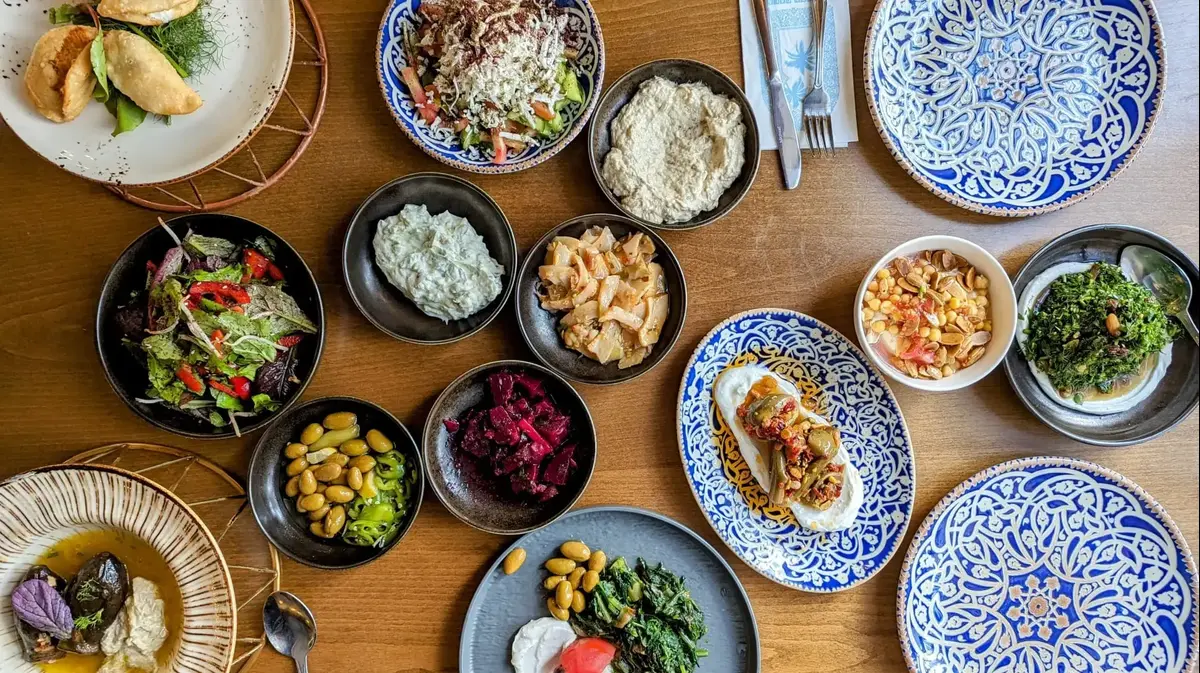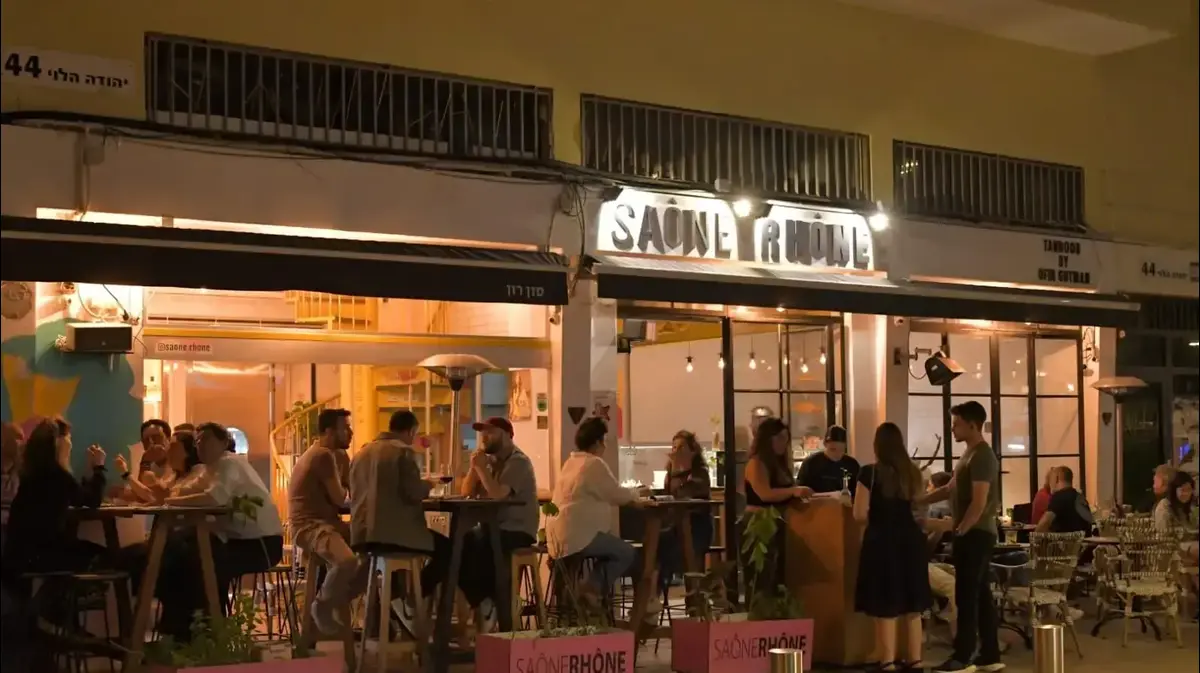"Proud Swedes": A racist debate erupted in light of the claim that they do not let guests eat
The Swedish nation is at the heart of a heated debate on the net, after it was alleged that they do not know how to host.
Food historians confirm and explain why in some cultures it is customary to invite guests to a meal - and in others less so.
Get ready for a food war
Not to be missed
15/06/2022
Wednesday, 15 June 2022, 00:10
Share on Facebook
Share on WhatsApp
Share on Twitter
Share on Email
Share on general
Comments
Comments
Swedish singer Zara Larsson confirms: Swedes will not invite a guest to have dinner with them (@ argzaralarsson /)
Are Swedes not polite, do not know how to host and like to share food?
An argument that has erupted on the net accuses the Swedes of arrogance and claims that they do not like to host others for meals.
What started as a story about a family that did not invite a guest to join them for dinner very quickly turned into a snowball rolling over countries and cultures that do not like to host - and others that always leave the door and oven open.
Like any disproportionate viral debate, it all started with a simple question posted on the Reddit forum, when a user asked, "What's the weirdest thing you had to do in someone else's house because of their culture / religion?".
One answer drew special attention: "I remember going to my Swedish friend's house. While we were playing in his room, his mother shouted that dinner was ready. And record it: he told me to wait in his room while they ate."
More on Walla!
Singapore's Startup: A beer made from diuretics and sewage
To the full article
This is how it started:
More on food:
A McDonald's USA worker in a painful confession: “Do not order this drink.
Learn from my mistake "
Scientists warn: Food in the world will run out in 27 years
People are just now discovering the truth behind M & M's name
Every Thursday: benefits and attractions for only 10 NIS - only in the Walla!
Swedes do not share food! (Photo: Giphy)
The discussion quickly moved from Twitter to Twitter, where some users admitted that this type of hosting (or rather - lack of hosting) is very common in Sweden and other parts of Northern Europe and the Nordic countries.
"When I'm alone, I can confirm that," Carl tweeted, "it's weird for me to feed someone else's child if he just came to play."
The anecdote drew criticism from Swedes from countries in the southern hemisphere, who saw them as arrogant and stingy.
"As an Italian, I will never do such a thing," one wrote in response and another added: "In Spain I think you can call the police if such a thing happens."
The Swedish user confirms:
The hashtag #SwedenGate has begun to gain momentum on Twitter with more surfers expressing their opinions.
"In Saudi Arabia we had to make a video to prevent people from ordering and insisting that the census workers eat at their place," tweeted @AmjaDtranslate.
Another person wrote: "I'm from the southern United States ... the idea of not feeding a guest aggressively is really unthinkable."
The video calling to stop hosting:
"As my Moroccan parents say, if we have guests and we have nothing ready, at least give them tea and cookies, or in the Moroccan version: olive oil, homemade bread and some olives on the side," tweeted one of the surfers.
"In Indonesia if guests come to visit, we make sure they eat and eat and eat. No one is allowed to be hungry with us," tweeted another.
The debate also reached the ears of Swedish pop singer Zara Larsson who told Tiktok: "My family in life would not have done it, many families would not, but there are also many families since and it was not strange. They just say 'I will eat when I get home' .. "It's totally part of Swedish culture, I do not know why, I really do not know."
"As my Moroccan parents say ...
Zara Larson's full response:
@argzaralarsson Zara Larsson on #SwedenGate - @zaralarsson #ZaraLarsson #Sweden #fyp ♬ sonido original - Zara Larsson Argentina
Also on Instagram woke up, but what, the username LoverOfGeography shared a map of countries in Europe divided according to the probability of serving food to their guests.
Sweden, Norway and Denmark are marked as "unlikely to be given food", while countries such as Italy, Spain and Greece are marked as "almost always given to eat".
The division of countries (and we are sure that if Israel had appeared there - we would have been blue)
View this post on Instagram
A post shared by CEO of Geography we post Daily (@loverofgeography)
So what closes with you Sweden?
To better understand the differences between food and hospitality cultures around the world, NPR spoke with anthropologists and food researchers.
The first thing asked is: Would a host in Sweden really not invite a guest to join his meal if it's dinner time?
"It does happen," says Richard Telstrom, a food historian at Stockholm University and author of a book on Swedish food culture in the 19th and 20th centuries.
He says this practice existed when he was a child in the 60s and 70s.
If he was staying at a friend's house and it was time for dinner, he would go home to eat or wait in another room while his friend finished eating - and then they would keep playing.
"It was not so bad," he said, "it was quite interesting to wait - you could look at things in the room, read a magazine. It did not take that long, about 7 to 9 minutes or how long it took him to eat."
"It was not a universal rule," he says, "families in the countryside, for example, were more likely to feed guests. People lived farther apart, so it was not easy for people to go home and eat."
"The 'no dinner for you' policy, sir 'has slowly faded," says Telstrom, "since the 1990s, food has become a new symbol in society. We have open kitchens. People like to dine on them and show off their cooking."
More on Walla!
This is how we made the Israeli salad that Jennifer Aniston made for a set of "friends" for a decade
To the full article
Swedes respond to hysteria:
And there are those who came out in their defense:
However, non-participating hosts have not completely disappeared, claims Mohini Mehta, a culinary anthropologist, food researcher and doctoral student at Uppsala University in Sweden.
She remembers one of the first things her international colleagues told her after arriving in the country from India: a host may leave a guest to have dinner, all alone, in the next room.
Such a thing did not happen to her while she was in Sweden, she says, but the anecdote "shocked" her to the core.
She said: "I thought it was ridiculous and also unreliable. How can anyone do such a thing?".
Mehta admits she had a hard time adjusting to life in Sweden when she moved there during the Corona plague in 2020. She used to cook dinner daily for friends and host parties almost every week in India.
After the conditions of the closure in Sweden were lifted, she began inviting new friends and colleagues to dinner - but these politely refused her.
She has learned that in some cultures, like hers, sharing a meal with someone is a way to break the ice - but this is not always the case with Swedes.
"This is because many Swedes think that guest feeding creates a sense of commitment," Telstrom explains, "and in a society that values equality and independence, people do not want to burden someone or feel they owe someone something."
More about the hysteria on social media:
How is it possible without?
And what is happening in the rest of the world?
The online discussion raises the question: if people in some countries are willing to share meals - and even do so happily, what is the reason for this generosity?
Krishnando Ray, a professor of food studies at New York University who grew up in India, says there is a sense of hospitality in every culture, but some ethnic groups have a stronger moral imperative to feed others.
This may be due to the past.
"In communities with a long history of poverty, the memory of hunger creates pressure to be welcoming to people," he says. "This tragedy as a reminder to share food with their neighbors."
"My grandmother, that if it were not for the stingy, she would never close the door on a poor person without feeding him," he says, "she explicitly linked her hospitality to the memory of hunger."
And where have we not yet reached?
Of course - Latiktok
@madelineraeaway The way the world threw Swedes under the bus this week?
(credit: @Your Fav TV Host❤️) #swedengate ♬ original sound - Madeline
Swedish explains: "My parents said that if my friend's parents prepared dinner for him, we would ruin their meal by feeding him."
@perssonp #connect with @demajhak #Swedengate #swedentiktok #fyp #fördigpage #foryou #fördig ♬ original sound - PerssonP
Ray points to another example in Chinese culture.
During the Great Chinese Famine from 1959 to 1961, some 30 million people died of starvation.
"Some researchers argue that the competitive hospitality of culture and the abundance gestures - over-ordering at a restaurant, a variety of dishes at a banquet, insisting that guests taste the most selected items on the table - are linked to the same memories of food shortages," he says. It's about generosity, gift-giving and hospitality. "
The Swedes eat and discuss the question:
@gabrielradman Debating #swedengate with my Swedish friends… #fyp #sweden #IKEA ♬ original sound - Gabriel Radman
And a painful cynical response:
@filippastrands #swedengate #imsorryAnna ♬ original sound - Filippa Strand
Meanwhile, Ray finds the online controversy, #SwedenGate, entertaining.
"People just enjoy laughing at Swedes because let's really admit, in all other things they'm pretty right," he says.
We are quite convinced that in Israel if a guest came to the house and sat and watched the host family eat dinner without him - it would have long ago become a viral post on Facebook and an item with Guy Lerer.
Food
Food News
Tags
meals
Hosting
Sweden
Family Meal








